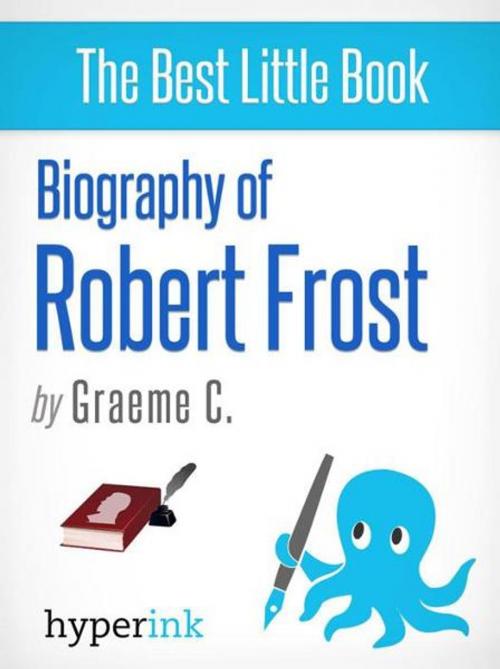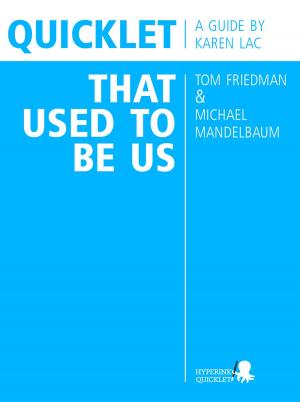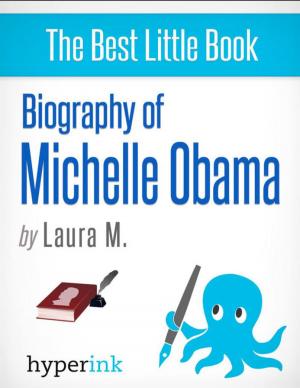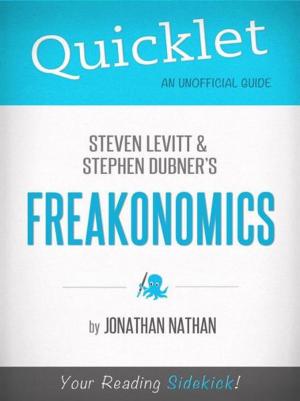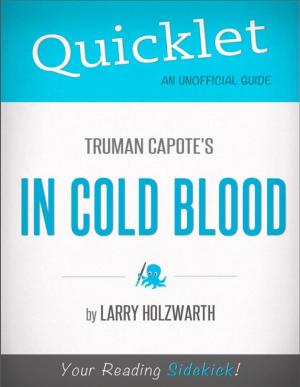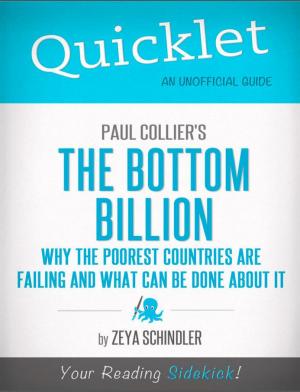Robert Frost: A Biography
Biography & Memoir, Literary, Nonfiction, Reference & Language, Study Aids| Author: | Greame C. | ISBN: | 9781614644170 |
| Publisher: | Hyperink | Publication: | March 4, 2012 |
| Imprint: | Language: | English |
| Author: | Greame C. |
| ISBN: | 9781614644170 |
| Publisher: | Hyperink |
| Publication: | March 4, 2012 |
| Imprint: | |
| Language: | English |
This book is part of Hyperink's best little books series. This best little book is 3,500+ words of fast, entertaining information on a highly demanded topic. Based on reader feedback (including yours!), we may expand this book in the future. If we do so, we'll send a free copy to all previous buyers.
ABOUT THE BOOK
Robert Frost is one of the greatest, and certainly the most popular, American poets of the 20th Century. Frost is often lauded for his realistic depictions of nature and his use of colloquial speech in his work. His poems are conversational, but unlike many modern poets, he embraced some of the formal restrictions of previous eras.
Randall Jarrell, one of the most committed and insightful interpreters of Frost's work, has said of him, "Robert Frost, along with Stevens and Eliot, seems to me the greatest of the American poets of this century. Frost's virtues are extraordinary. No other living poet has written so well about the actions of ordinary men; his wonderful dramatic monologues or dramatic scenes come out of a knowledge of people that few poets have had, and they are written in a verse that uses, sometimes with absolute mastery, the rhythms of actual speech. It is hard to overestimate the effect of this exact, spaced-out, prosaic movement, whose objects have the tremendous strength."
Although Frost was born in San Francisco, and brought up in the city of Lawrence, Massachusetts, his work is almost entirely inspired by the nature of the New England country, where he owned and worked a number of farms. Throughout his life, Frost attempted to reconcile his desire for the life of the farm, and his love of teaching.
EXCERPT FROM THE BOOK
Robert Frost's family life was marked by tragedy. His early and recurring experiences of loss shaped the harsh and bleak outlook of much of his poetry. Since Frost was a private person, not much is known about his private life aside from what is told in his official biography, written by Lawrence Thompson. Thompson was given the contract to write Frost's life when Frost was in his early 60s, but on the condition that nothing would be published until Frost died. Frost lead a long life, and Thompson had to wait 25 years before he could bring his project to fruition.
This long, close relationship between biographer and subject, coupled with Frost's habit of embroidering the truth, lead to a considerable degree of frustration for Thompson, and resulted in a biography that is very critical of Frost's personality, especially his behavior towards his family.
Thompson presents Frost as a mendacious person who tended to self-mythologize and exaggerate his hardships. He also presents him as being a domineering and harsh husband and father. The reality of this depiction has been questioned by scholars in the years since Frost's death.
Buy a copy to keep reading!
This book is part of Hyperink's best little books series. This best little book is 3,500+ words of fast, entertaining information on a highly demanded topic. Based on reader feedback (including yours!), we may expand this book in the future. If we do so, we'll send a free copy to all previous buyers.
ABOUT THE BOOK
Robert Frost is one of the greatest, and certainly the most popular, American poets of the 20th Century. Frost is often lauded for his realistic depictions of nature and his use of colloquial speech in his work. His poems are conversational, but unlike many modern poets, he embraced some of the formal restrictions of previous eras.
Randall Jarrell, one of the most committed and insightful interpreters of Frost's work, has said of him, "Robert Frost, along with Stevens and Eliot, seems to me the greatest of the American poets of this century. Frost's virtues are extraordinary. No other living poet has written so well about the actions of ordinary men; his wonderful dramatic monologues or dramatic scenes come out of a knowledge of people that few poets have had, and they are written in a verse that uses, sometimes with absolute mastery, the rhythms of actual speech. It is hard to overestimate the effect of this exact, spaced-out, prosaic movement, whose objects have the tremendous strength."
Although Frost was born in San Francisco, and brought up in the city of Lawrence, Massachusetts, his work is almost entirely inspired by the nature of the New England country, where he owned and worked a number of farms. Throughout his life, Frost attempted to reconcile his desire for the life of the farm, and his love of teaching.
EXCERPT FROM THE BOOK
Robert Frost's family life was marked by tragedy. His early and recurring experiences of loss shaped the harsh and bleak outlook of much of his poetry. Since Frost was a private person, not much is known about his private life aside from what is told in his official biography, written by Lawrence Thompson. Thompson was given the contract to write Frost's life when Frost was in his early 60s, but on the condition that nothing would be published until Frost died. Frost lead a long life, and Thompson had to wait 25 years before he could bring his project to fruition.
This long, close relationship between biographer and subject, coupled with Frost's habit of embroidering the truth, lead to a considerable degree of frustration for Thompson, and resulted in a biography that is very critical of Frost's personality, especially his behavior towards his family.
Thompson presents Frost as a mendacious person who tended to self-mythologize and exaggerate his hardships. He also presents him as being a domineering and harsh husband and father. The reality of this depiction has been questioned by scholars in the years since Frost's death.
Buy a copy to keep reading!
